Speakers
Types of Perturbations

Michael D. Fox, MD, PhD (Chair)
Professor of Neurology
Center for Brain Circuit Therapeutics at Brigham and Women’s Hospital
Michael D. Fox, MD, PhD, is the founding Director of the Center for Brain Circuit Therapeutics at Brigham and Women’s Hospital and Professor of Neurology at Harvard Medical School. He is also the inaugural Raymond D. Adams Distinguished Chair of Neurology and the Kaye Family Research Director of Psychiatric Brain Stimulation.
He completed a degree in Electrical Engineering at Ohio State University, an MD and PhD at Washington University in St. Louis, and Neurology Residency and Movement Disorders Fellowship at Mass Gen Brigham. Clinically, he specializes in the use of invasive and noninvasive brain stimulation for the treatment of neurological and psychiatric diseases.
Dr. Fox’s research focuses on developing new treatments for brain disease by understanding brain circuits, brain lesions, and the effects of neuromodulation. His papers have been cited over 46,000 times and he has won awards across the fields of neurology, psychiatry, and brain stimulation, including the inaugural Trailblazer Prize for Clinician Scientists from the NIH Foundation.

Laura Y. Cabrera, MA, PhD
Associate Professor
Pennsylvania State University
Dr. Cabrera is the Dorothy Foehr Huck and J. Lloyd Huck Chair in Neuroethics. She is an Associate Professor of Engineering Science and Mechanics, and Philosophy at Penn State University. She is Senior Research Associate at the Rock Ethics Institute and affiliated with the Center for Neural Engineering. Dr. Cabrera is an honorific member of the Mexican Neuroethics Society, chair of the IEEE Brain Neuroethics Subcommittee, chair of the P7700 -Recommended Practice for the Responsible Design and Development of Neurotechnologies – Standard Development Group, and member of the International Neuroethics Society (INS) Board of Directors. She was recently elevated to Senior IEEE Member. Dr. Cabrera’s interests focus on the ethical, societal, and cultural implications of neurotechnologies used for treatment as well as for non-medical purposes.
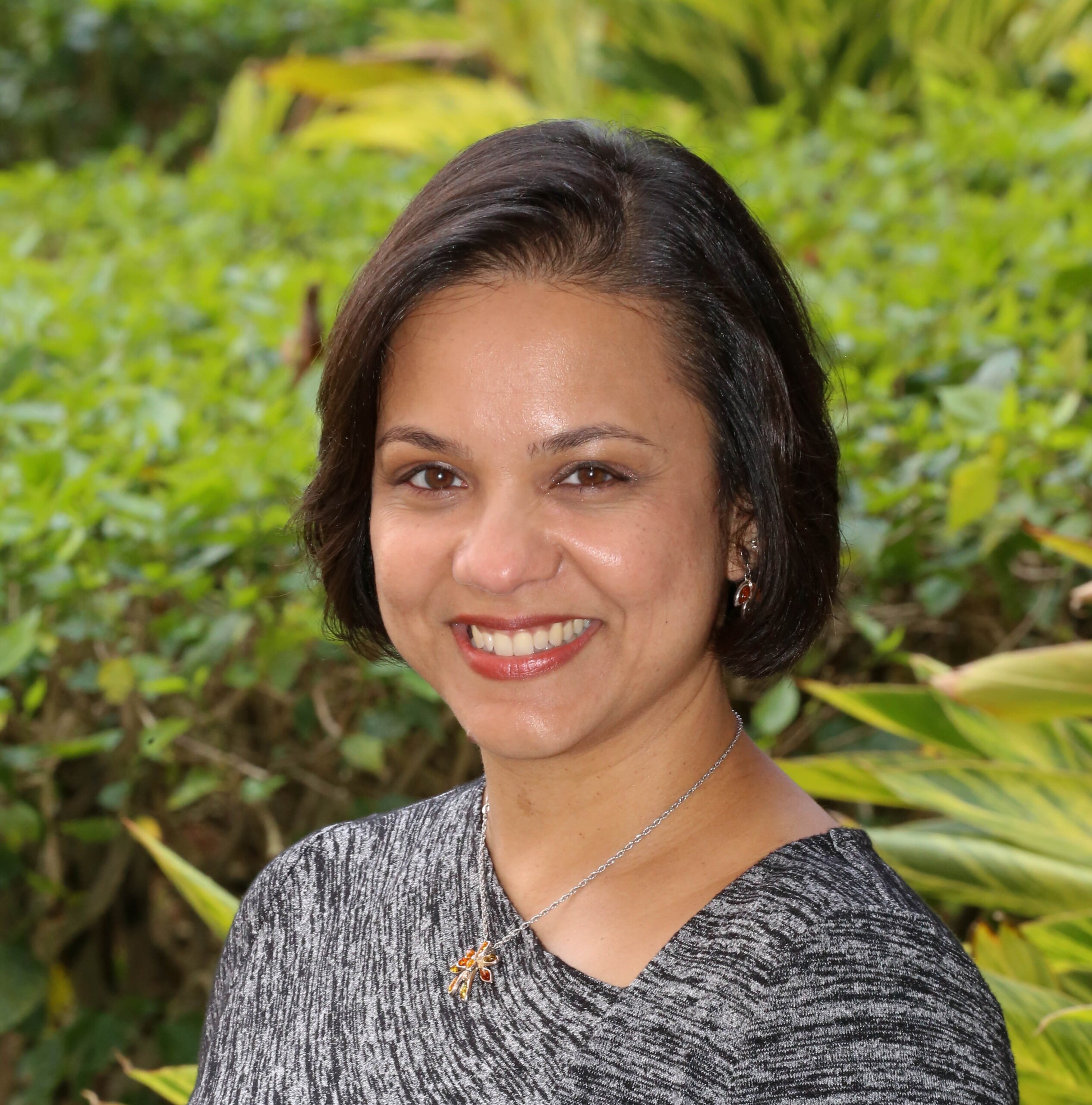
Joohi Jimenez-Shahed, MD
Associate Professor of Neurology, Medical Director of Movement Disorders
Neuromodulation & Brain Circuit Therapeutics
Icahn School of Medicine at Mount Sinai
Dr. Jimenez-Shahed is an Associate Professor of Neurology and Medical Director, Movement Disorders Neuromodulation and Brain Circuit Therapeutics at the Icahn School of Medicine at Mount Sinai. After completing her undergraduate degree at Washington University in St. Louis, she received her medical degree from Baylor College of Medicine and Neurology residency training at Duke University Medical Center. She then completed a fellowship in Movement Disorders at the Parkinson’s Disease Center and Movement Disorders Clinic. Her clinical focus is on the evaluation and management of adults and children with movement disorders, with particular focus on the use of deep brain stimulation, focused ultrasound, and botulinum toxin injections.
Her research investigates the neurophysiologic features of movement disorders recorded during deep brain stimulation, the application of wearables and digital health technologies, and health outcomes research. She is the lead investigator for the Registry for the Advancement of Deep Brain Stimulation in Parkinson’s disease, a multi-center quality improvement patient registry whose pilot period was funded by the Michael J Fox Foundation.
Dr. Jimenez-Shahed currently serves as the Chair of the Science Advisory Board of the Davis Phinney Foundation for Parkinson’s and Chair of the Medical Advisory Board of the Tourette Association of America. She is a member of the Executive Committee of the Parkinson Study Group, where her roles include chairing the Mentorship Committee and previous leadership of the Functional Neurosurgical Working Group.
She is the recipient of the Roy H. Cullen Quality of Life Award, the Rising Star Clinician Award, the Fulbright & Jaworski L.L.P. Faculty Excellence Award in Teaching and Evaluation and the Healthcare Heroes Award for Outstanding Health Care Practitioner. She was recognized as a Woman of Excellence at BCM and is a graduate of the inaugural Women Leading in Neurology program of the American Academy of Neurology.
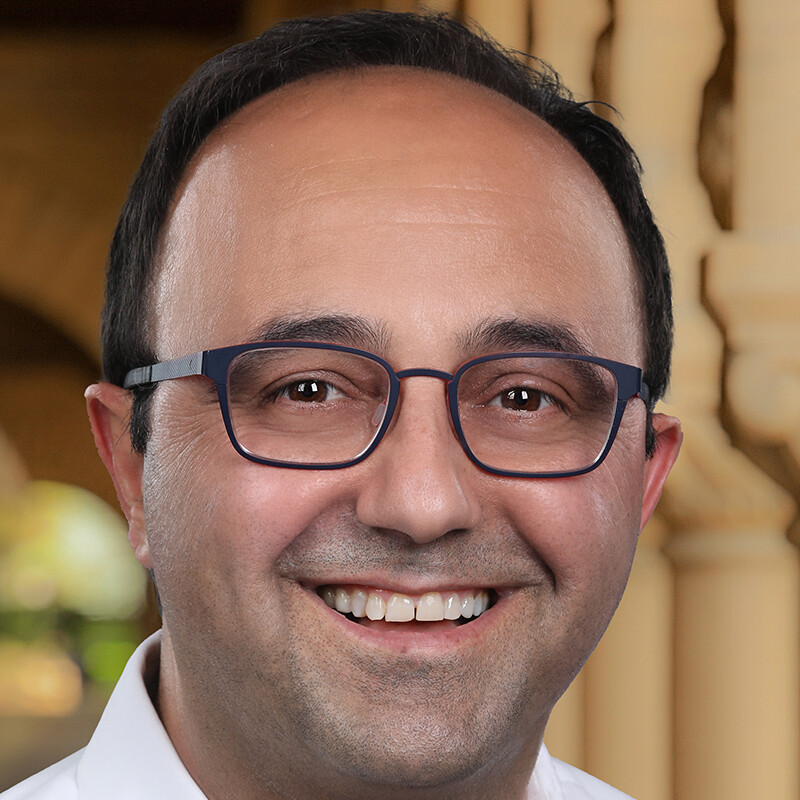
Josef Parvizi, MD PhD
Professor
Stanford University
Dr. Parvizi is a clinical neurologist at Stanford University Medical Center and is the principal investigator at the Laboratory of Behavioral and Cognitive Neuroscience that specializes in studying cross-regional dynamics of activity within the human brain. Dr. Parvizi completed his medical education at the University of Oslo and moved to the United States to complete his PhD training with Dr. Antonio Damasio (cognitive neuroscience) and Dr. Gary Van Hoesen (neuroanatomy). He completed his internship training at Mayo Clinic – Rochester and Neurology residency at Harvard. He completed epilepsy training at UCLA and has been working in the Department of Neurology and Neurological Sciences at Stanford University since 2007.

Shan Siddiqi, MD
Assistant Professor
Harvard Medical School, Brigham & Women’s Hospital
Shan Siddiqi is an assistant professor of psychiatry at Harvard Medical School and Director of Psychiatric Neuromodulation Research at the Center for Brain Circuit Therapeutics at Brigham & Women’s Hospital. His research is focused on identifying therapeutic brain stimulation targets for psychiatric disorders based on causal mapping of human brain function and dysfunction. Using techniques such as functional connectivity MRI, his lab maps brain circuits to link brain lesions and brain stimulation sites that can modify different psychiatric symptoms. These circuits can then be targeted with treatments such as transcranial magnetic stimulation (TMS) and deep brain stimulation (DBS) to treat mental illness. His work has been recognized with multiple awards from the Brain & Behavior Research Foundation, the American Neuropsychiatric Association, the American College of Neuropsychopharmacology, Harvard Medical School, and many others.

Nanthia Suthana, PhD
Associate Professor
University of California, Los Angeles
Nanthia Suthana, PhD, is an Associate Professor at UCLA in the departments of Psychiatry, Neurosurgery, Psychology and Bioengineering. She completed a BS and PhD in Neuroscience and postdoctoral training at UCLA before joining faculty. She uses wearable technologies in patients with deep brain electrodes to record and stimulate neural activity during cognitive functions such as learning and memory. Her overarching aim is to develop therapeutic interventions for individuals grappling with various brain disorders. She has been awarded multiple NIH grants, a McKnight Technological Innovations in Neuroscience Award, and a Keck Junior Faculty Award for her work. She currently serves as the Associate Director of the Neuromodulation Division at the Semel Institute for Neuroscience and Human Behavior and directs the UCLA T32 Training program in Translational Neurotechnology. She has also been awarded a UCLA postdoctoral mentoring award and contributes to efforts aimed at increasing diversity, educational and career opportunities for women and underrepresented minorities in her role as the Associate Director of Neuroscience outreach for the Brain Research Institute at UCLA.

David Van Essen
Washington University
Behavioral Assessments
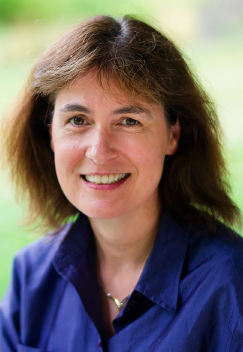
Sabine Kastner, MD, PhD (Chair)
Professor
Princeton University
Sabine Kastner is a Professor of Neuroscience and Psychology at Princeton University and serves as the Scientific Director of Princeton’s neuroimaging facility. Kastner is the Editor-in-Chief of The Journal of Neuroscience and the Director of a Silvio O. Conte Center for Basic Research.
Kastner’s research focuses on the neural basis of visual perception, attention, and awareness in the healthy, adult primate brain, in patients with brain lesions and during development with >150 publications. She is known for her pioneering work on the neural basis of visual attention, her comparative studies in the human and monkey brain, and her groundbreaking studies on the role of the thalamus in perception and cognition.
Kastner was educated in Germany, earning an MD degree from the University of Dusseldorf and a PhD degree in neurophysiology from the University of Gottingen. After postdoctoral training at the National Institute of Mental Health, she joined the faculty at Princeton in 2000, where she was promoted to full professor in 2009.
Kastner is a Fellow of the American Academy of Arts & Sciences, the American Psychological Society, the Society for Experimental Psychology and a Member of the German National Academy of Sciences (Leopoldina). She received the Young Investigator Award from the Cognitive Neuroscience Society in 2005 and the George A. Miller Prize in Cognitive Neuroscience in 2023. Kastner is passionate about public outreach such as fostering the careers of young women in science, promoting neuroscience in schools and public education, and exploring the intersection of visual neuroscience and art, being recognized with the Society for Neuroscience’s Award on Education in Neuroscience in 2019.
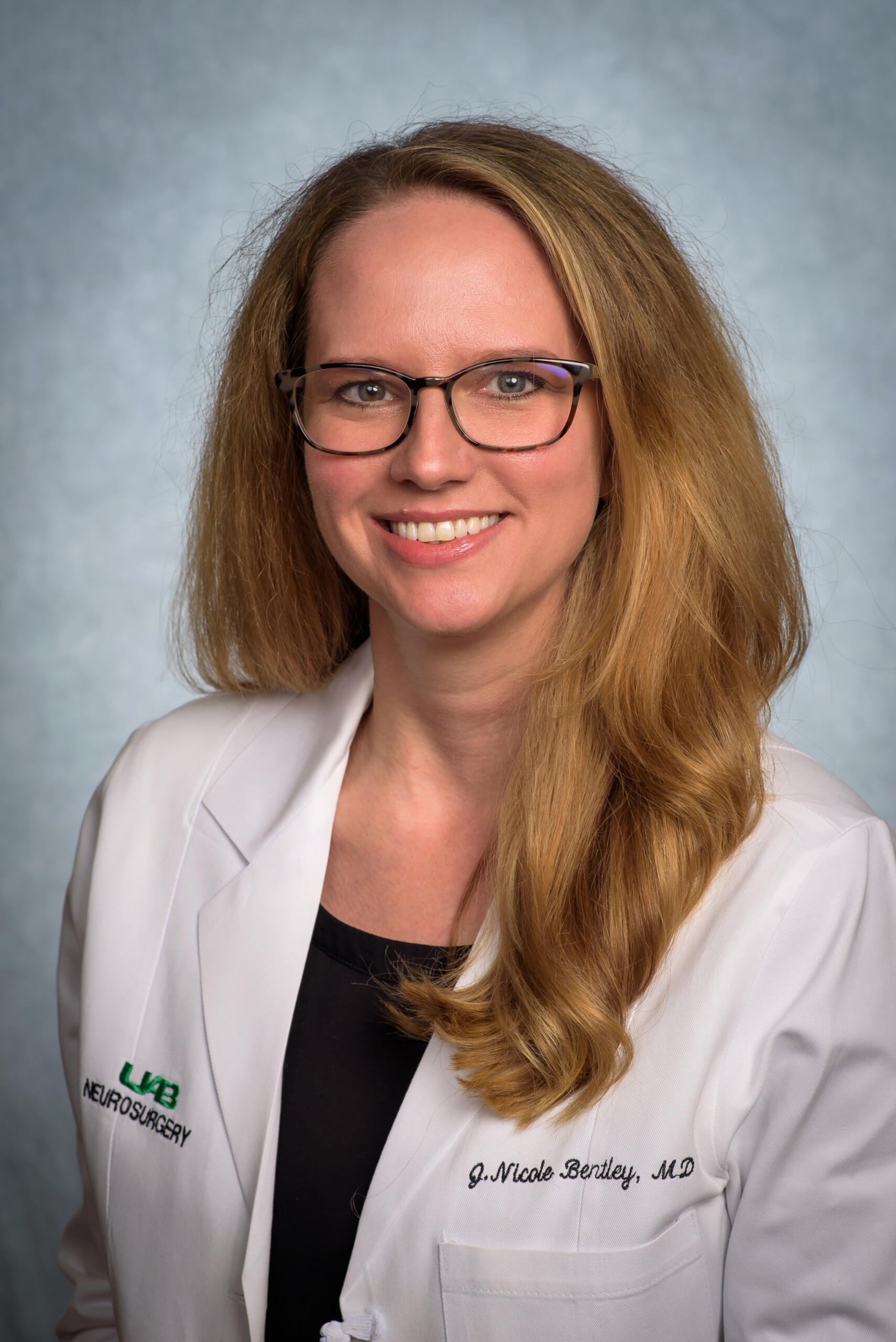
Nicole Bentley, MD
Associate Professor of Neurosurgery
University Of Alabama Birmingham
Dr. Nicole Bentley is an associate professor and board-certified neurosurgeon at UAB Neurosurgery and specializes in deep brain stimulation, epilepsy surgery, and movement disorders. Dr. Bentley attended Medical College of Georgia, completed her residency and post-doctoral research at the University of Michigan, and completed a fellowship in functional neurosurgery at Emory University. Her research interests are in understanding network interactions and electrophysiologic signaling during cognitive control in both healthy and pathologic states, in order to develop neuromodulation therapies for patients with neuropsychiatric disease.
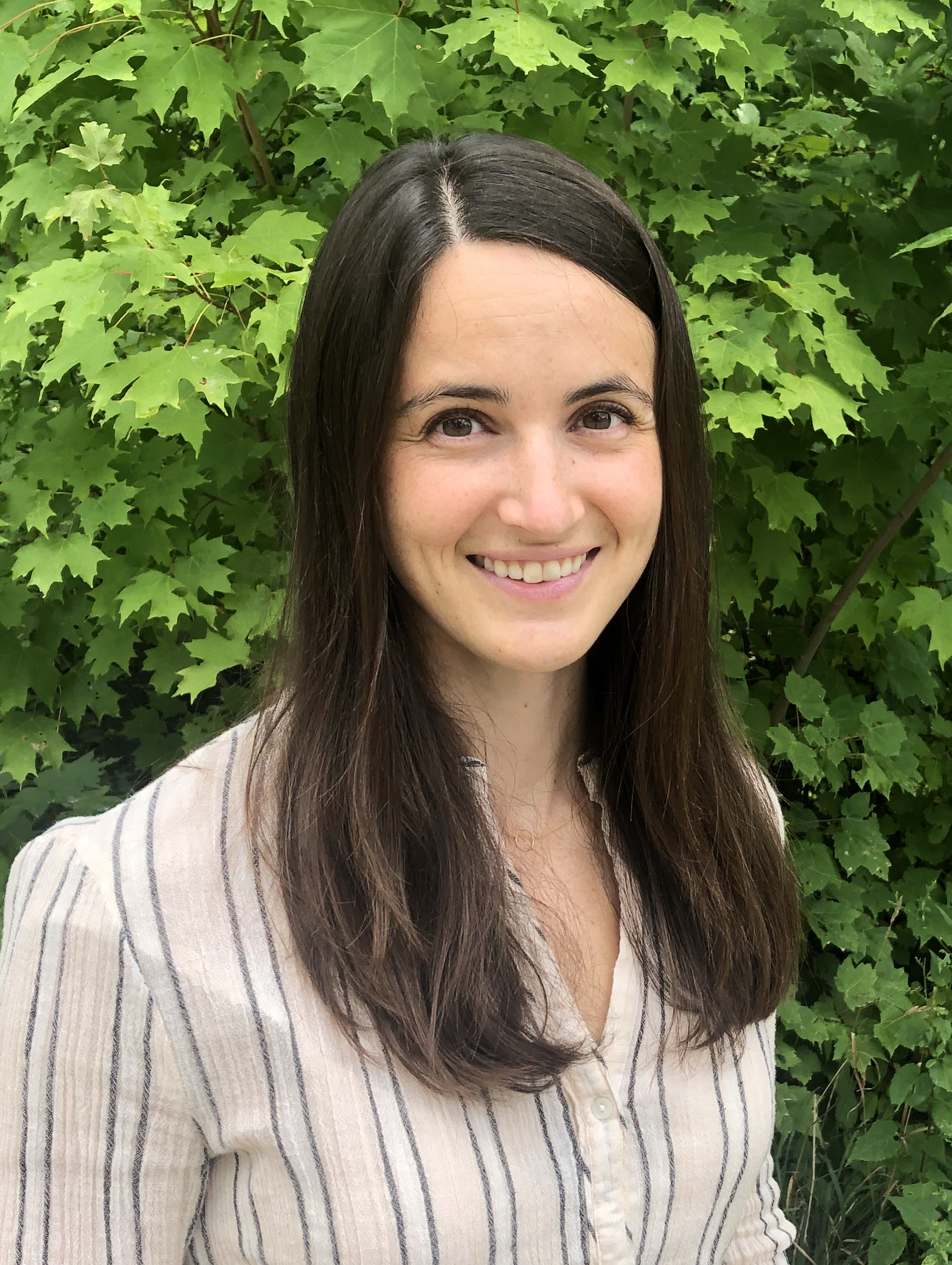
Emily S. Finn, PhD
Assistant Professor
Dartmouth College
Emily Finn is an assistant professor in the Department of Psychological and Brain Sciences at Dartmouth College, where she directs the Functional Imaging and Naturalistic Neuroscience (FINN) Lab. She completed her PhD in neuroscience at Yale University, and her postdoctoral training at the National Institute of Mental Health. Before that, she received a B.A. in linguistics, also from Yale. Emily has pioneered techniques such as functional connectome fingerprinting and connectome-based predictive modeling for predicting individual behaviors from functional brain connectivity. Her current work is focused on how within- and between-individual variability in brain activity relates to appraisal of ambiguous information under naturalistic conditions. She was named a Rising Star by the Association for Psychological Science and has also received the NIMH Director’s Award for Scientific Contributions.

Avniel Ghuman, PhD
University of Pittsburgh
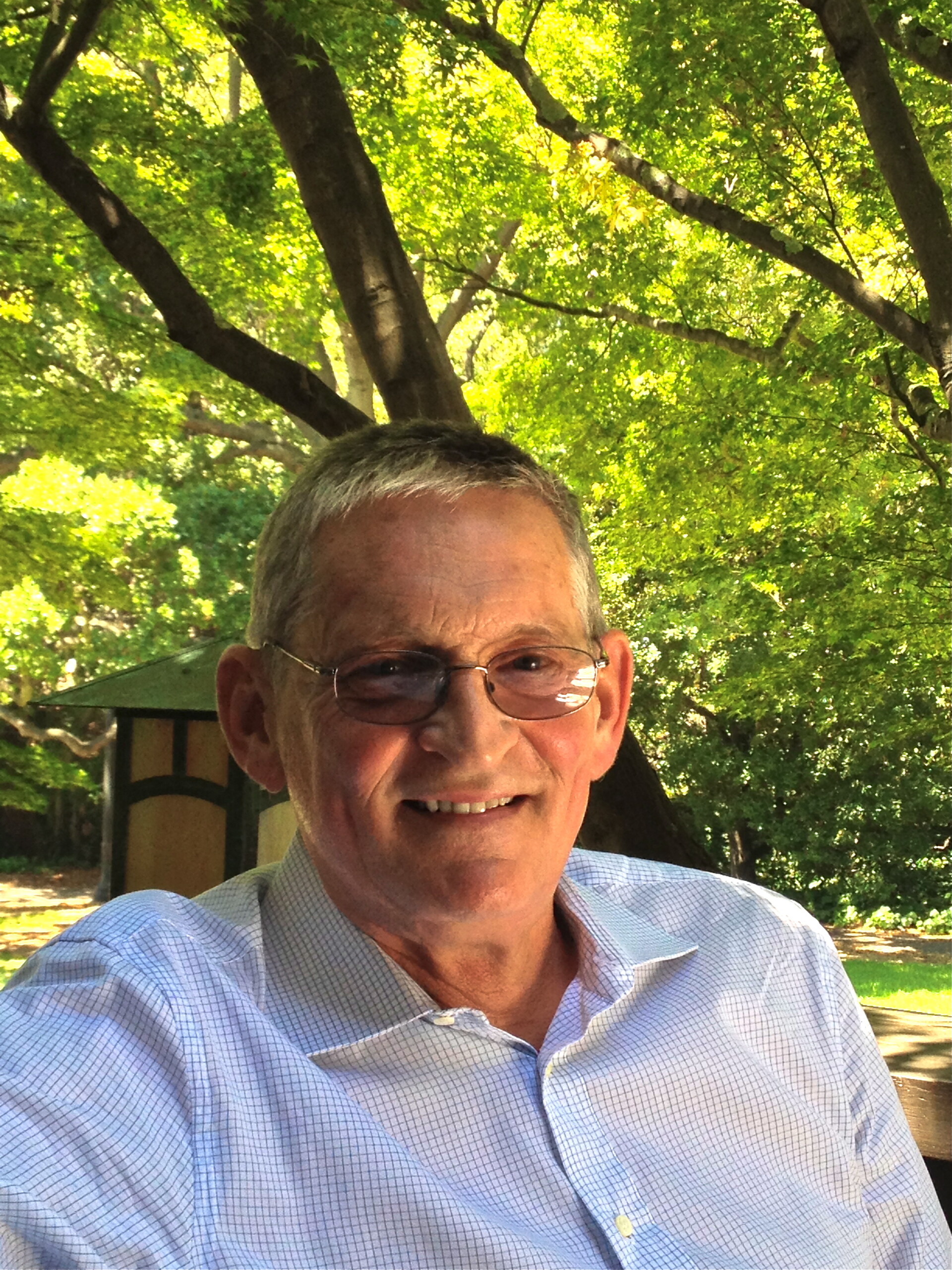
Robert T. Knight, MD
Professor
University of California, Berkeley
Bob Knight is a neurologist and a Professor of Psychology and Neuroscience at UC Berkeley. He has a BS in Physics from the Illinois Institute of Technology, an MD from Northwestern University Medical School, did Neurology training at UC San Diego and Post-Doctoral training at the Salk Institute for Biological Studies. Bob has twice received the Jacob Javits Award from the NINDS for distinguished contributions to neurological research, the IBM Cognitive Computing Award, the German Humboldt Prize in Neurobiology, the NINDS Landis Mentoring Award, the Howard Crosby Warren Medal from the Society for Experimental Psychologists, the Distinguished Career Contribution Award from the Cognitive Neuroscience Society and the APA Award for Distinguished Scientific Contributions to Psychology. He is a Fellow of the American Association for the Advancement of Science and a member of the American Academy of Arts and Sciences. His laboratory records electrical signals directly from the brain in neurosurgical patients to understand the role of prefrontal cortex in goal-directed behavior and for development of neuroprosthetic devices for patients with disabling neurological disorders.

Jack J. Lin, MD
Professor
University of California, Davis
Dr. Jack Lin’s laboratory investigates the role of the amygdala-hippocampal-prefrontal network in emotion, episodic memory, decision-making, and sleep. As the Director of the surgical epilepsy program, he led a team of neurologists, neurosurgeons, and neuroscientists to utilize intracranial EEG recording in patients to perform extracellular recordings (local field potentials and single neurons) and complex behavior paradigms in awake humans. The direct recordings from human brains have provided critical insights into the neural bases of cognitive processing, including directional phase-amplitude coupling routing salient information from the amygdala to the hippocampus (Zheng, Nature Communications, 2016), high gamma neural activity (70-200 Hz) indexing spatial precision in the hippocampal CA1 (Stevenson, PNAS, 2018), and theta/alpha frequency multiplexing supporting mnemonic discrimination of emotional stimuli (Zheng, Neuron, 2019). They recently addressed how sharp-wave ripples coordinate frontal-hippocampal information transfer during sleep (Helfrich, Nature Communications, 2019; Skelin, PNAS, 2021; Lendner, Science Advances, 2023) and how awake ripples enhance emotional memory (Zhang, Nature Communications, 2024).

Earl Miller, PhD
Massachusetts Institute of Technology
Levels of Explanation

Dani S. Bassett, PhD (Chair)
J. Peter Skirkanich Professor
University of Pennsylvania
Professor Dani S. Bassett is the J. Peter Skirkanich Professor at the University of Pennsylvania, with appointments in the Departments of Bioengineering, Electrical & Systems Engineering, Physics & Astronomy, Neurology, and Psychiatry. They are also an external professor of the Santa Fe Institute. Bassett is most well-known for blending neural and systems engineering to identify fundamental mechanisms of cognition and disease in human brain networks. They received a B.S. in physics from Penn State University and a Ph.D. in physics from the University of Cambridge, UK as a Churchill Scholar, and as an NIH Health Sciences Scholar. Following a postdoctoral position at UC Santa Barbara, Bassett was a Junior Research Fellow at the Sage Center for the Study of the Mind. They have received multiple prestigious awards, including American Psychological Association’s ‘Rising Star’ (2012), Alfred P Sloan Research Fellow (2014), MacArthur Fellow Genius Grant (2014), Early Academic Achievement Award from the IEEE Engineering in Medicine and Biology Society (2015), Office of Naval Research Young Investigator (2015), National Science Foundation CAREER (2016), Popular Science Brilliant 10 (2016), Lagrange Prize in Complex Systems Science (2017), Erdos-Renyi Prize in Network Science (2018), OHBM Young Investigator Award (2020), AIMBE College of Fellows (2020), American Physical Society Fellow (2021), and has been named one of Web of Science’s most Highly Cited Researchers for 4 years running. Bassett is the author of more than 450 peer-reviewed publications, which have garnered over 51,000 citations. Bassett’s work has been supported by the National Science Foundation, the National Institutes of Health, the Army Research Office, the Army Research Laboratory, the Office of Naval Research, the MacArthur Foundation, and the Center for Curiosity among others. Bassett has recently co-authored Curious Minds: The Power of Connection (MIT Press) with philosopher and twin Perry Zurn.

David Badre
Brown University
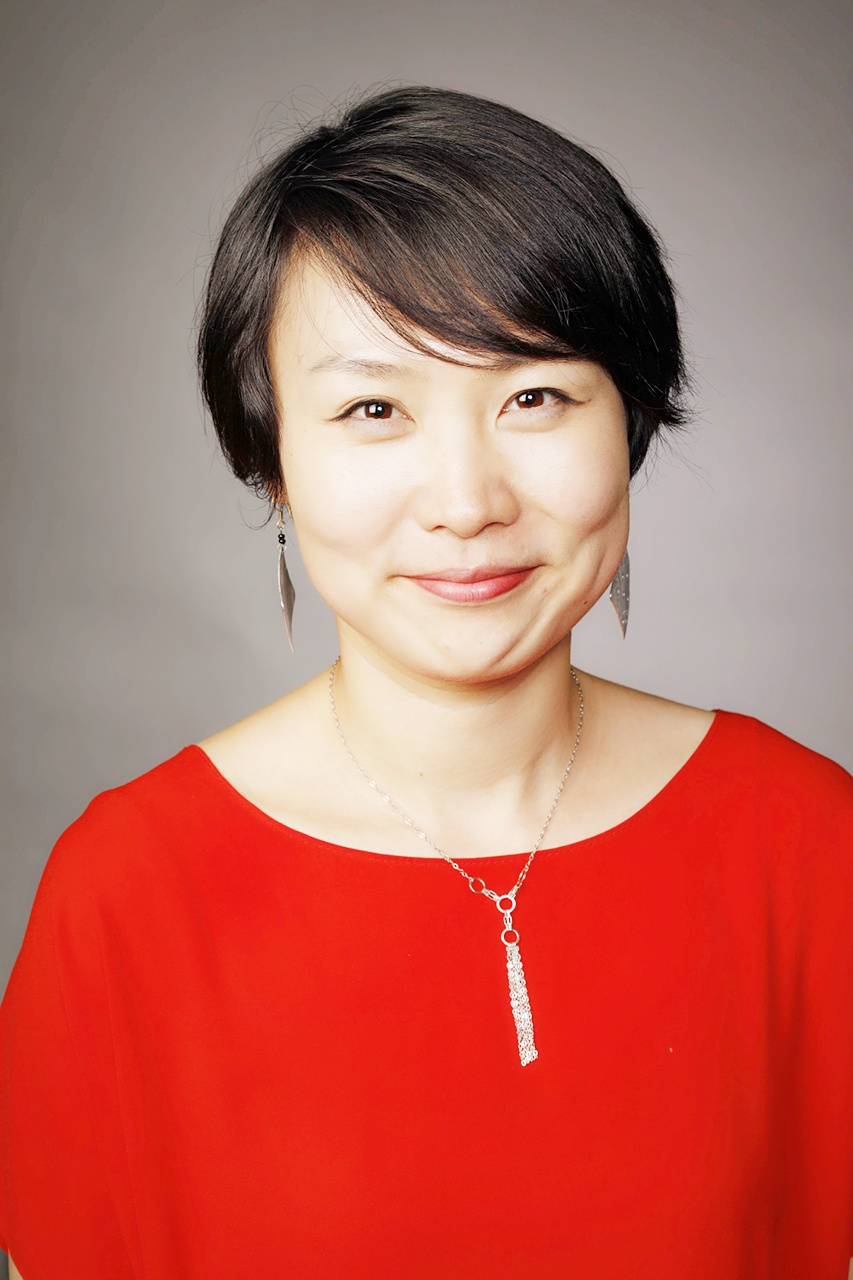
Xiaosi Gu, PhD
Director
Center for Computational Psychiatry, Icahn School of Medicine at Mount Sinai
Dr. Xiaosi Gu is a tenured Associate Professor in the Departments of Psychiatry, Neuroscience, and Artificial Intelligence and Director of the Center for Computational Psychiatry at the Icahn School of Medicine at Mount Sinai in New York City. Her research examines the neural computations underlying higher-order cognition in humans such as reward and social decision-making, using a combination of computational modeling, neuroimaging, and intracranial recording techniques. She is currently leading multiple NIH and private foundation grants to study on how these processes might go awry across various psychiatric disorders, including depression, autism, personality disorders, and drug addiction.
Dr. Gu received her PhD in Neuroscience at Mount Sinai and postdoctoral training at the Wellcome Trust Centre for Neuroimaging, University College London (UCL). Before re-joining ISMMS, Dr. Gu held faculty positions at the University of Texas (UT), Dallas and UT Southwestern Medical Center. She has published widely in high-impact scientific journals such as Nature Human Behavior, Nature Mental Health, JAMA Psychiatry, Biological Psychiatry, PNAS, etc. She has also advised organizations worldwide including the Wellcome Trust and the Max Planck Society. Dr. Gu is an Editor-in-Chief for the newly established journal Computational Psychiatry and a Reviewing Editor for eLife. She is also currently chairing the organizing committee of the Computational Psychiatry Conference, which evolved from the UCL Computational Psychiatry Course she established in 2014. Beyond her scientific work, Dr. Gu is an avid advocate for raising public awareness and community engagement in mental health. She is a frequent speaker and panelist at mental health-related public events including a Tedx conference (2018). She is also the creator of the Summer Program In Computational Education (SPICE), a free educational program for high school and college students from underserved backgrounds.
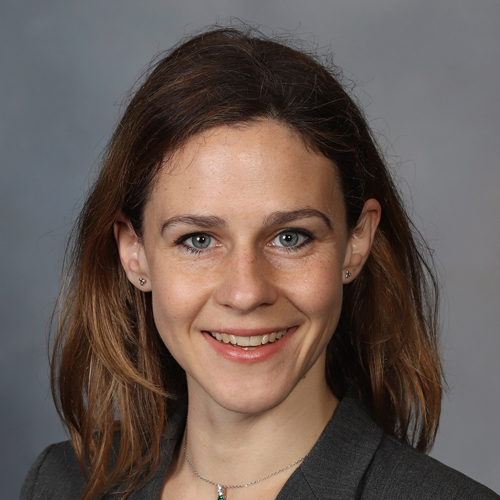
Dora Hermes, PhD
Associate Professor
Mayo Clinic
Dora Hermes is an Associate Professor in Biomedical Engineering at Mayo Clinic in Rochester, MN. She did her graduate training at the UMC Utrecht in The Netherlands working in the lab of Professor Nick Ramsey. Her PhD work focused on understanding the relation between functional MRI and field potentials in the human brain, and understanding to what extend fMRI can be used to localize an area to implant electrodes for brain-machine interfaces. For her postdoctoral training she applied these techniques to better understand visual processing at Stanford University and New York University. She received a Veni fellowship from the Netherlands Organization for Scientific Research to translate this work to better understand photosensitivity and epilepsy. Dr. Hermes’ current research focuses on understanding the mesoscale signals measured in the living human brain in order to identify stimulation driven biomarkers of neurological disease and develop neuroprosthetics to interface with the brain.

Andreas Horn, MD, PhD
Associate Professor
Brigham & Women’s Hospital
Andreas received an MD from Freiburg University and a PhD from Charité Berlin. He is Associate Professor for Neurology at Harvard Medical School and the director of deep brain stimulation research within the Center for Brain Circuit Therapeutics at Brigham & Women’s Hospital in Boston. He is further affiliated with the Massachusetts General Hospital in Boston and Charité Berlin.
His lab studies how focal neuromodulation impacts the human connectome to refine clinical treatments for neurological and psychiatric disorders. A key question is which networks should be modulated for improvements of specific symptoms – in disorders such as Parkinson’s Disease, Obsessive Compulsive Disorder, Depression, or Alzheimer’s Disease. Further, the lab develops methods to segregate the human connectome into functional domains by combining brain stimulation with functional and diffusion-weighted MRI.

Conor Liston
Cornell University
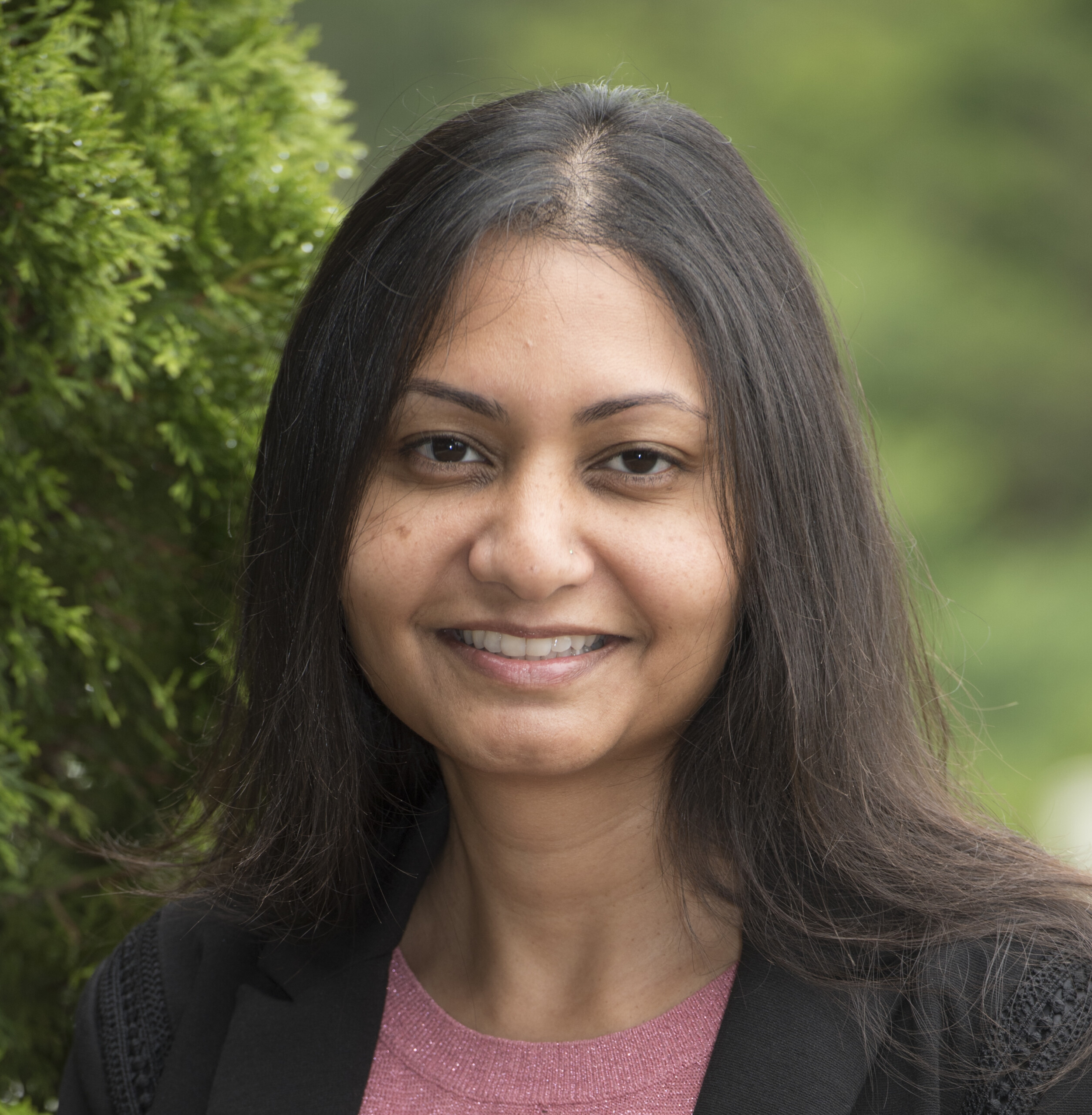
Lucina Q. Uddin, PhD
Professor
University of California Los Angeles
After receiving a PhD in cognitive neuroscience from the Psychology Department at the University of California Los Angeles, Dr. Uddin completed a postdoctoral fellowship in the Child Study Center at New York University. For several years she worked as a faculty member in Psychiatry & Behavioral Science at Stanford University. She recently returned to UCLA where she currently directs the Brain Connectivity and Cognition Laboratory and the Center for Cognitive Neuroscience Analysis Core in the Semel Institute for Neuroscience and Human Behavior. Within a cognitive neuroscience framework, Dr. Uddin’s research combines functional and structural neuroimaging to examine the organization of large-scale brain networks supporting the development of social cognition and executive function. Her current projects focus on understanding dynamic brain network interactions underlying cognitive inflexibility in neurodevelopmental conditions such as autism spectrum disorder. Dr. Uddin’s work has been published in the Journal of Neuroscience, Cerebral Cortex, JAMA Psychiatry, Biological Psychiatry, PNAS, and Nature Reviews Neuroscience. She was awarded the Young Investigator award by the Organization for Human Brain Mapping in 2017.
Theory & Modeling

Christopher Butson (Chair)
University of Florida

Viktor Jirsa, PhD
Professor
INS Aix Marseille University
Viktor Jirsa is a theoretical neuroscientist who has introduced realistic connectivity into large-scale brain network modeling. His work has been foundational for network science in brain medicine and the use of personalized virtual brain models in brain disease such as epilepsy and aging. Dr. Jirsa has led the development of the widely used The Virtual Brain simulation platform.
Viktor Jirsa is Director of the Inserm Institut de Neurosciences des Systèmes at Aix-Marseille-Université in Marseille, France. He studied Physics and Philosophy in Stuttgart, Germany, and received his PhD in Theoretical Physics and Applied Mathematics in 1996. After a tenure of 10 years as full faculty member at the Center for Complex Systems and Brains Sciences at Florida Atlantic University, USA, Dr. Jirsa returned to Europe as Director of Research at the Centre National de la Recherche Scientifique in Marseille, France. Since 2022 he serves as Chief Science Officer of the European digital neuroscience infrastructure EBRAINS.
Viktor Jirsa leads the Virtual Brain Twin consortium creating a digital ecosystem in support of treatment of psychiatric patients using high performance computing, detailed multiscale brain simulation and innovative AI tools. Viktor Jirsa serves on various boards, e.g. the International Scientific Advisory Board of National Institute for Neurology Research, Brno, Czech Republic. In 2018 he was elected member of the European Academy of Sciences and Arts. Viktor Jirsa has received various international awards during his career including the first Human Brain Project Innovation prize, Grand Prix de Recherche en Provence, and Francois Erbsmann Prize.
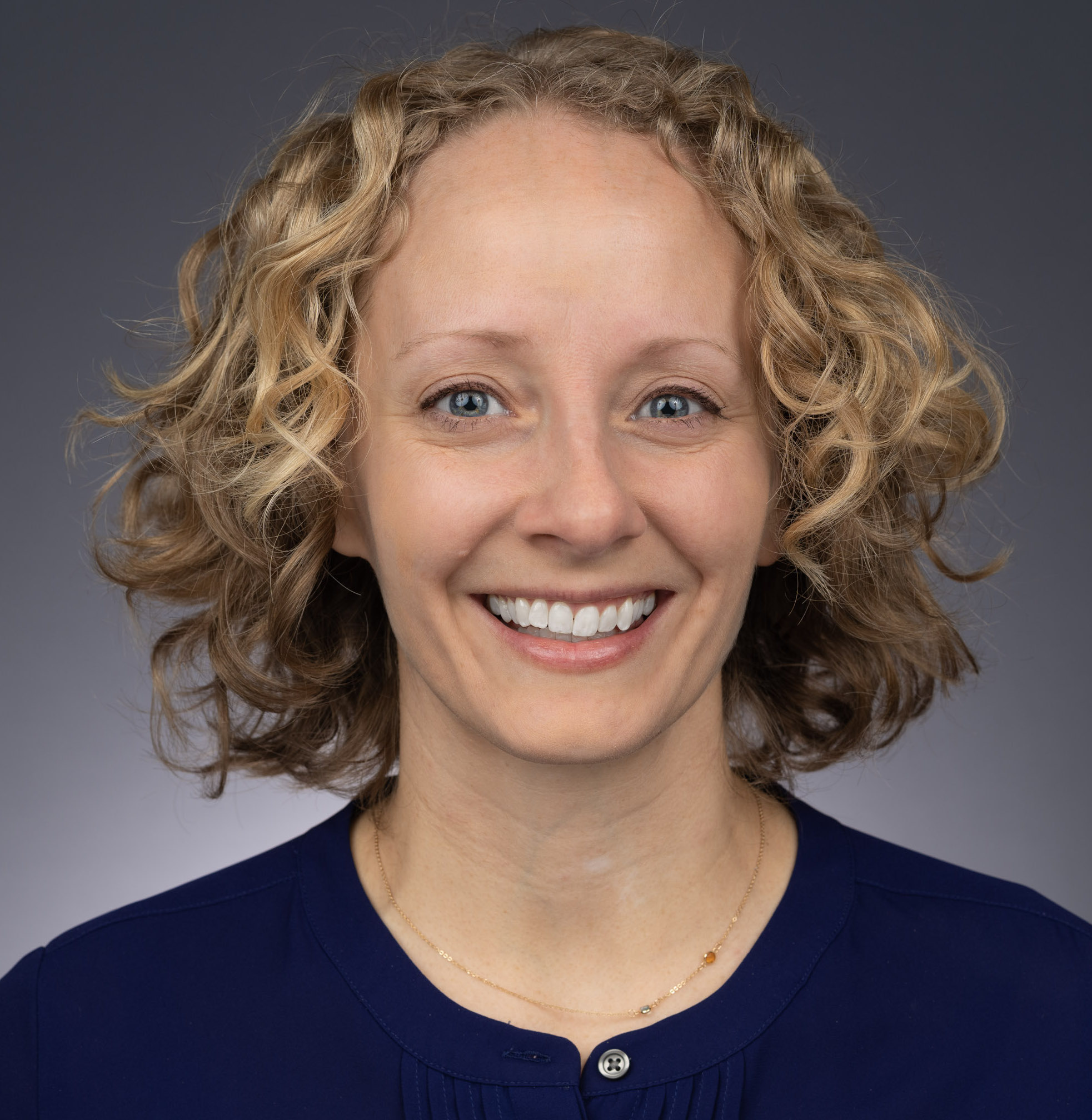
Amy Kuceyeski, PhD
Professor
Weill Cornell Medicine
For the past 15 years, Amy has been interested in understanding how the human brain works in order to better diagnose, prognose and treat neurological disease and injury. Quantitative approaches, including AI, applied to data from rapidly evolving neuroimaging techniques, have the potential to enable ground-breaking discoveries about how the brain works. Amy has particular interest in non-invasive and invasive brain stimulation and pharmacological interventions, like psychedelics, that may be used to modulate brain activity and promote recovery from disease or injury. Amy is also a co-director of the AI core for the Ann S. Bowers Women’s Brain Health Initiative, an institute spanning several top academic centers that is poised to shed light on the mystery that is the female brain. The initiative will focus on understanding how the brain is changed by oral contraceptives, pregnancy, motherhood, menopause and aging/dementia.
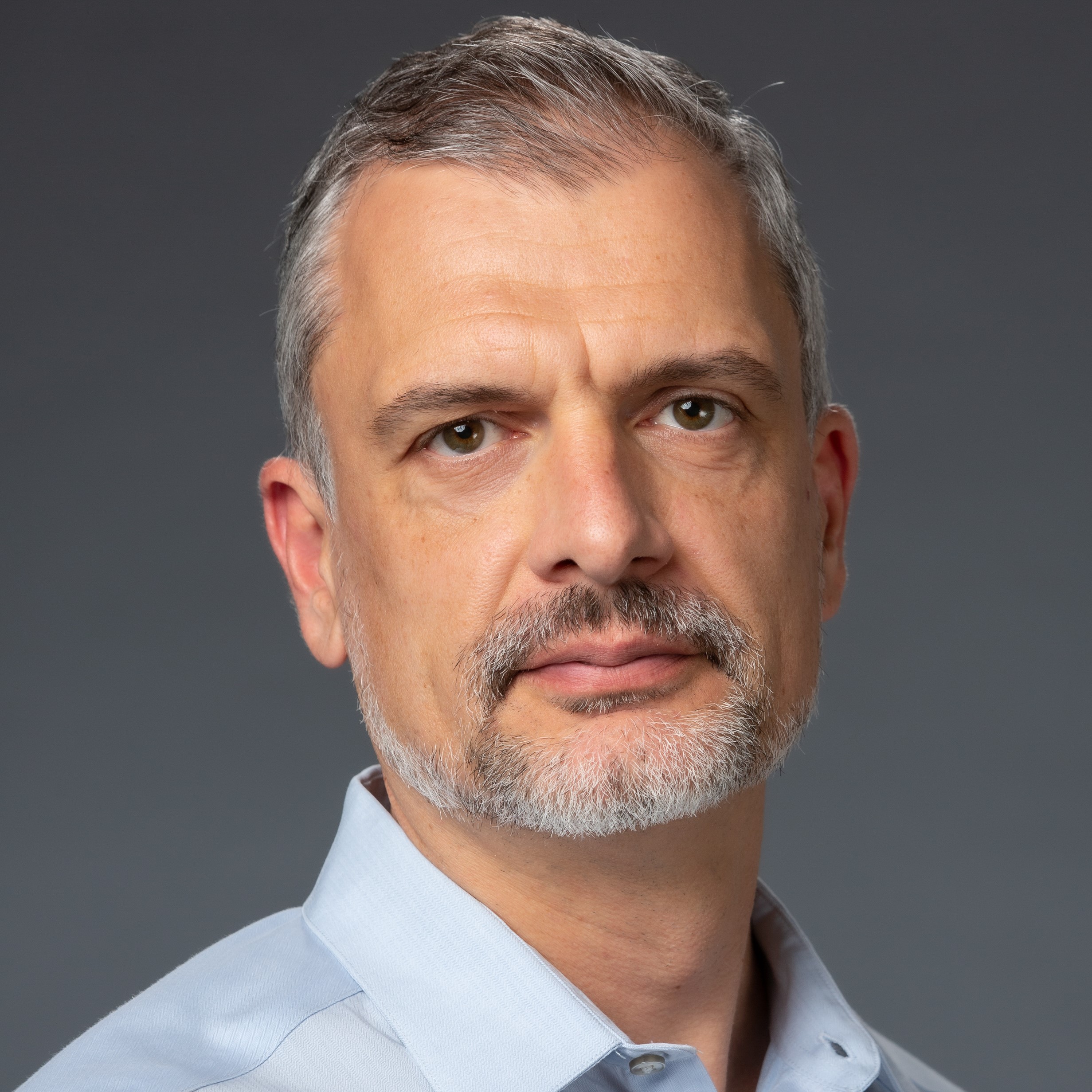
Angel V. Peterchev, PhD
Professor
Duke University
Angel V. Peterchev received the AB degree in Physics & Engineering Sciences from Harvard University and PhD degree in Electrical Engineering & Computer Science from the University of California, Berkeley. He completed post-doctoral training in Brain Stimulation at Columbia University. Dr. Peterchev is presently Professor at Duke University in the Department of Psychiatry & Behavioral Sciences, with secondary appointments in Electrical & Computer Engineering, Biomedical Engineering, and Neurosurgery. He directs the Brain Stimulation Engineering Lab and Duke Transcranial Magnetic Stimulation Course. Dr. Peterchev’s research aims to improve noninvasive brain stimulation through the development of devices, computational models, and application paradigms. He has contributed to transcranial magnetic stimulation (TMS) and transcranial electrical stimulation (TES) technology, electromagnetic field and neural activation simulations, and experimental studies exploring mechanisms and dose–response relationships. Research highlights include the development of devices for TMS that leverage design techniques from power electronics and computational electromagnetics to enable more flexible stimulus control, focal stimulation, and quiet operation; experimental studies in human subjects and animal models to characterize and optimize the brain response to TMS and TES; multi-scale computational models that couple simulations of the electromagnetic fields, single neuron responses, and neural population modulation induced by electric and magnetic brain stimulation; and modeling, algorithmic, and targeting tools for response estimation, dose individualization, and precise localization of TMS. Some of the technology developed by Dr. Peterchev’s lab has been commercialized, for example as ElevateTMS cTMS, incorporated in free software packages, such as SimNIBS, or made available as a free online app, such as SAMT.

Petra Ritter, PhD
Full Professor
BIH, Charité
Petra Ritter heads the Brain Simulation Section at the Charité University Medicine Berlin and Berlin Institute of Health (BIH) and is Director for International Affairs at the Charité as well as Spokesperson of the Extended Directorate of the Berlin Institute of Health. She serves in the leadership of large EU infrastructure projects such as the Testing and Experimentation Facility Health AI and Robotics (TEF-Health), European Open Science Cloud’s Virtual Brain Cloud und eBRAIN-Health and she is directing the Health Data Cloud of EBRAINS – a research infrastructure on the roadmap of the European Strategy Forum for Research Infrastructures. Petra Ritter studied medicine in Germany and in the US.

Ignacio Saez, PhD
Associate Professor
Icahn School of Medicine at Mount Sinai
Ignacio Saez, PhD is an Associate Professor in the Departments of Neuroscience, Neurosurgery, and Neurology and the Director of the Human Neurophysiology Laboratory at the Icahn School of Medicine at Mount Sinai and the Friedman Brain Institute. His research focuses on understanding how human cognition arises from the interaction of multiple brain areas and neurotransmitter systems, particularly in decision-making behavior. Dr. Saez’s research involves studying prefrontal cortical and subcortical areas directly in the human brain by conducting intracranial electrophysiology recordings in patients undergoing neurosurgical treatment.
Dr. Saez’s research aims to provide a more comprehensive understanding of the neurobiological basis of human decision-making behavior, and how it is affected in psychiatric disorders accompanied by behavioral deficits such as depression and addiction. His research projects include investigating the neural basis of human decision-making under uncertainty using distributed intracranial EEG (iEEG) recordings in epilepsy patients, studying the human dopaminergic system during invasive Deep-Brain Stimulation (DBS) interventions, and development of new invasive neurostimulation approaches for treatment of brain disorders.

Maryam Shanechi, PhD
Dean’s Professor
University of Southern California
Maryam M. Shanechi is Dean’s Professor in Electrical and Computer Engineering, Computer Science, Biomedical Engineering, and Neuroscience Graduate Program at the University of Southern California (USC). She is also Founding Director of the newly established USC Center for Neurotechnology. She received her B.A.Sc. degree in Engineering Science from the University of Toronto, her S.M. and Ph.D. degrees in Electrical Engineering and Computer Science from MIT, and her postdoctoral training in Neural Engineering and Neuroscience at Harvard Medical School and UC Berkeley. She conducts research at the intersection of engineering, computation, and neuroscience to develop closed-loop neurotechnology and study the brain through decoding and control of neural dynamics. She is the recipient of several awards including the NIH Director’s New Innovator Award, NSF CAREER Award, ONR Young Investigator Award, ASEE’s Curtis W. McGraw Research Award, MIT Technology Review’s Top 35 Innovators Under 35, Popular Science Brilliant 10, Science News SN10, One Mind Rising Star Award, and a DoD Multidisciplinary University Research Initiative (MURI) Award. She is a Fellow of the IEEE and was named a 2023 Blavatnik National Awards Finalist.
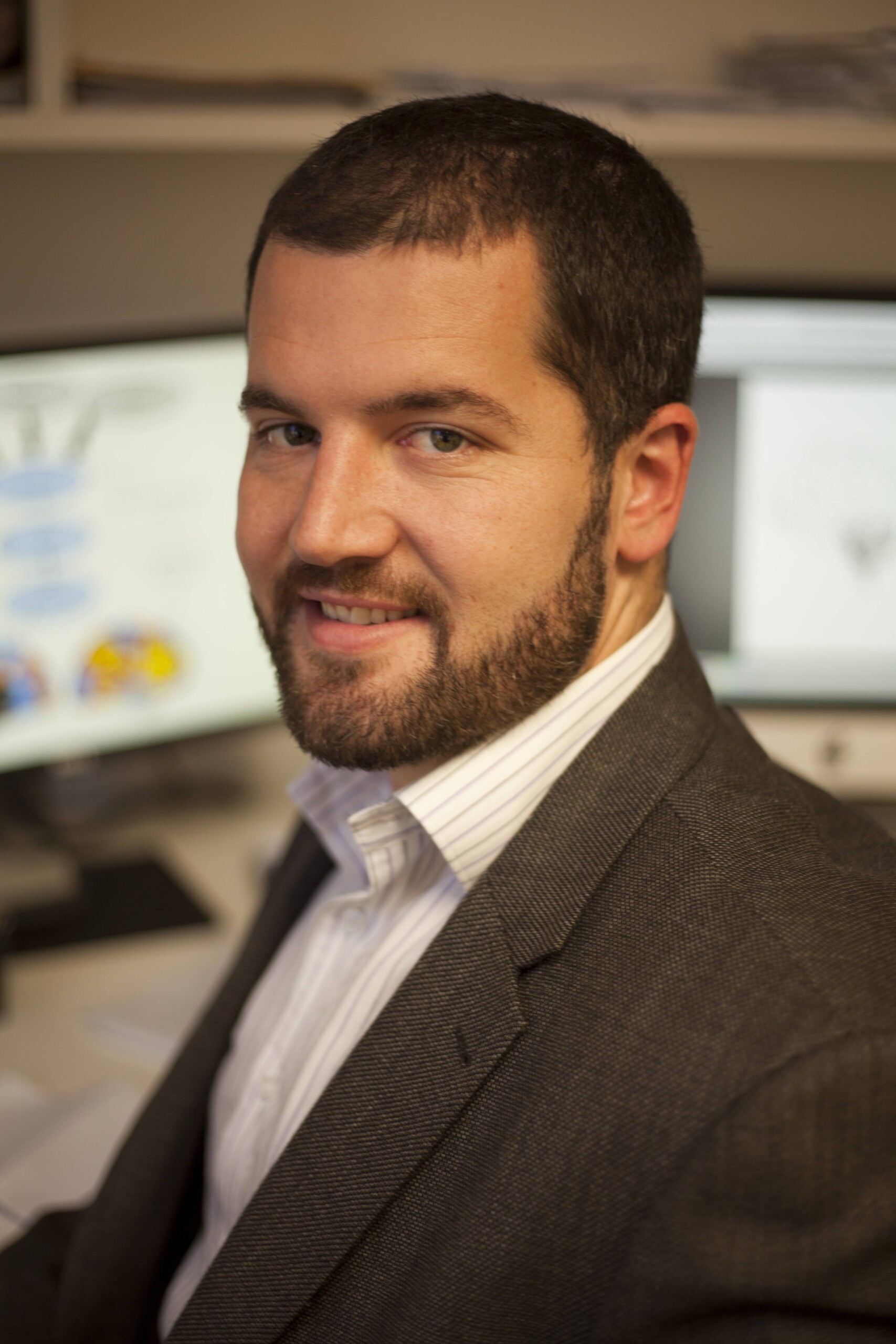
James M. Shine, BSc, MBBS, PhD
Associate Professor
The University of Sydney
Dr. Shine is a systems neurobiologist working to understand the mechanisms of cognition and attention using functional brain imaging, computational modelling, neurobiology and dynamical systems. He has a particular interest in understanding how the different arms of the ascending arousal system and the thalamus flexibly modulate the cross-scale organization of the brain to facilitate adaptive behaviour. He is currently working as a joint NHMRC/Bellberry fellow at The University of Sydney.
Practical questions related to invasive and non-invasive approaches
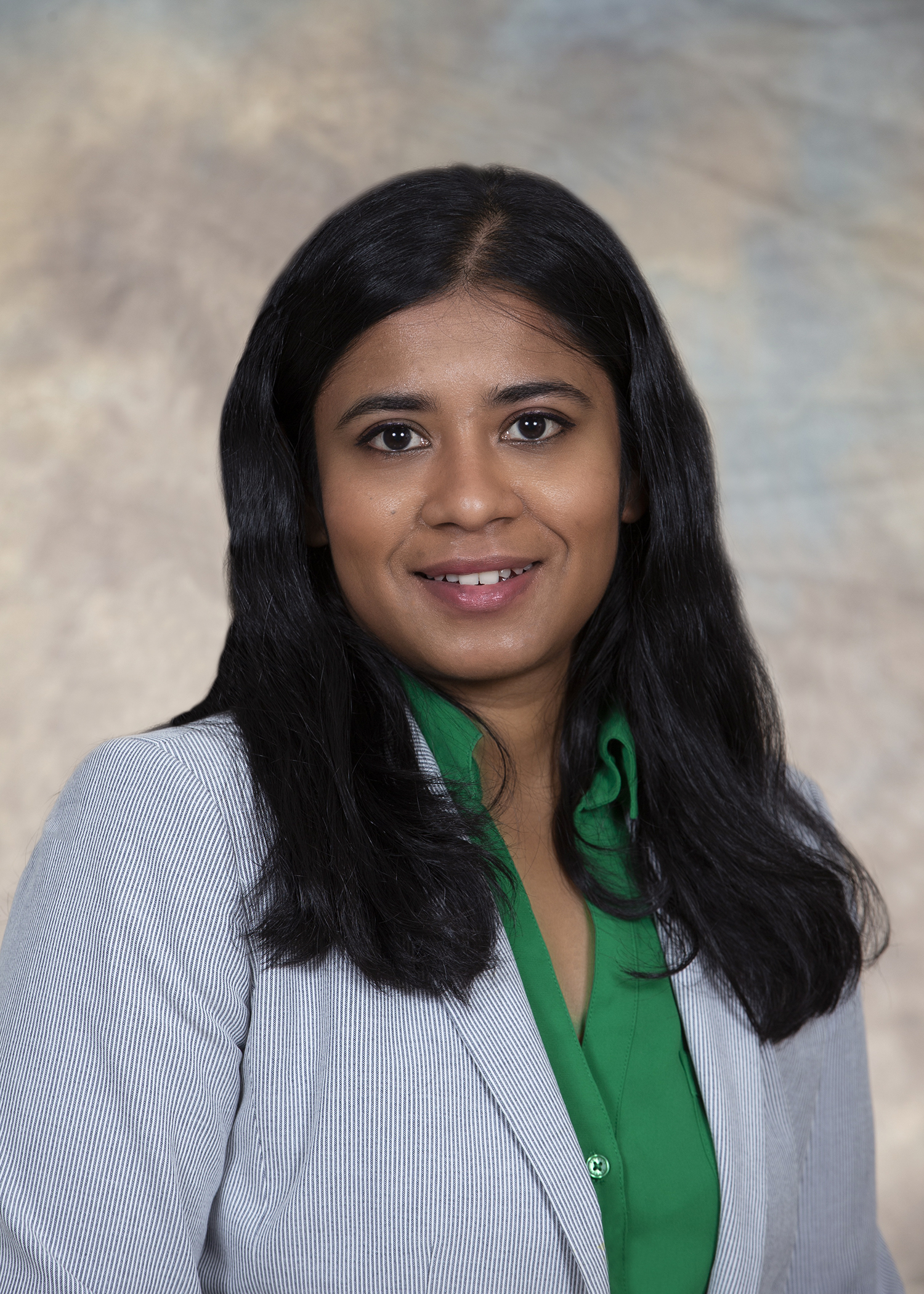
Ishita Basu, PhD (Chair)
Assistant Professor
University of Cincinnati
Dr. Ishita Basu is a neural engineer with more than a decade of experience in brain signal analysis and modelling. Her research uses techniques from engineering and computational neuroscience to design innovative treatment paradigms for major neurological and psychiatric disorders. Born and brought up on the east coast of India, Ishita came to Chicago in 2006, where she received her PhD from the University of Illinois. She went on to complete postdoctoral fellowships at the Johns Hopkins University and Massachusetts General Hospital before taking her current position as an Assistant Professor in the departments of Neurosurgery and Biomedical Engineering at the University of Cincinnati. Her future vison is to integrate a diverse group of biomedical engineers, neuroscientists, psychiatrists, and medical students to advance the field of neural engineering and neuromodulation in mental disorders.

Sameer Sheth (Chair)
Baylor College of Medicine

Joel L. Voss, PhD (Chair)
Professor
University of Chicago
Joel Voss is a Professor of Neurology at the University of Chicago, where he directs the Center for Neurocognitive Outcomes Improvement Research (or Center N.O.I.R.). His research uses human-neuroscience approaches to investigate brain mechanisms for memory and to develop novel interventions for memory impairments. His laboratory has been continuously funded by the NIH through the NINDS, NIMH, and NIA since 2010, and his laboratory’s discoveries have been recognized via awards such as the Presidential Early Career Award for Scientists and Engineers from the White House, the Young Investigator Award from the Cognitive Neuroscience Society, and others. Dr. Voss received his Ph.D. in Neuroscience from Northwestern University, was a Fellow of the Beckman Institute at the University of Illinois Urbana-Champaign, and was faculty at the Northwestern University Feinberg School of Medicine before moving to the University of Chicago in 2021.

Damien Fair, PA-C, PhD
Redleaf Endowed Director, Masonic Institute for the Developing Brain
Professor, Institute of Child Development, College of Education and Human Development
Professor, Department of Pediatrics, Medical School
Masonic Institute for the Developing Brain, University of Minnesota
Damien Fair is a Cognitive Neuroscientist and Professor in the Institute of Child Development and the Department of Pediatrics at the University of Minnesota. He is also the Redleaf Endowed Director of the Masonic Institute of the Developing Brain. Combining technical advances in functional magnetic resonance imaging, advanced mathematics, and expertise in psychology and neuroscience, Fair has been able to demonstrate several basic principles of brain development and its relationships to typical and atypical behaviors. In 2012, he was awarded the Presidential Early Career Award for Scientists and Engineers Issued by President Barack Obama and the White House. In 2020 he was named a John D. and Catherine T. MacArthur Fellow. He currently serves on the Board of Scientific Counselors for the National Institute on Alcohol Abuse and Alcoholism and Council for the National Institute of Child Health and Human Development. He also serves on the Scientific Research Council for the Child Mind Institute. Fair is deeply committed to public service, community engagement, and STEM education. He founded and directed the Youth Engaged in Science (YES!) initiative (2011-2020), a program aimed at exposing underrepresented youth to scientific research and related careers. He founded and directed the OHSU Fellowship for Diversity and Inclusion (2014-2020), a program aimed at increasing diversity of the scientific workforce in academia. He has served on the Society for Neuroscience Public Education and Communication Committee, Press Committee, Workforce and Training Groups, and maintained a position on the BrainFacts.org editorial board (2017-2020). He has given several briefings to the Congressional Neuroscience Caucus and the American Brain Coalition on the intersection of brain development and policy making. Fair aims to advance the intersection of mental health care, cognitive psychology and neuroscience and widen the reach of those who are trained and ‘touched’ by the efforts.

Peter Janssen
Leuven Brain Institute

Kara A. Johnson, PhD
Postdoctoral Fellow
University of Florida
Dr. Kara A. Johnson is a postdoctoral fellow at the University of Florida at the Norman Fixel Institute for Neurological Diseases and the Department of Neurology. She earned her BS and PhD in Biomedical Engineering from the University of Utah. Her current research aims to understand the therapeutic mechanisms of deep brain stimulation (DBS) in movement disorders such as Parkinson’s disease (PD) using neurophysiology, neuroimaging, and computational modeling. She also holds special interest in nonmotor symptoms and psychiatric disorders, including Tourette syndrome and mood disorders. Her ultimate goal is to develop multimodal, translational approaches to guide DBS and other neuromodulation therapies to improve treatments and quality of life for patients with neurological and psychiatric disorders.
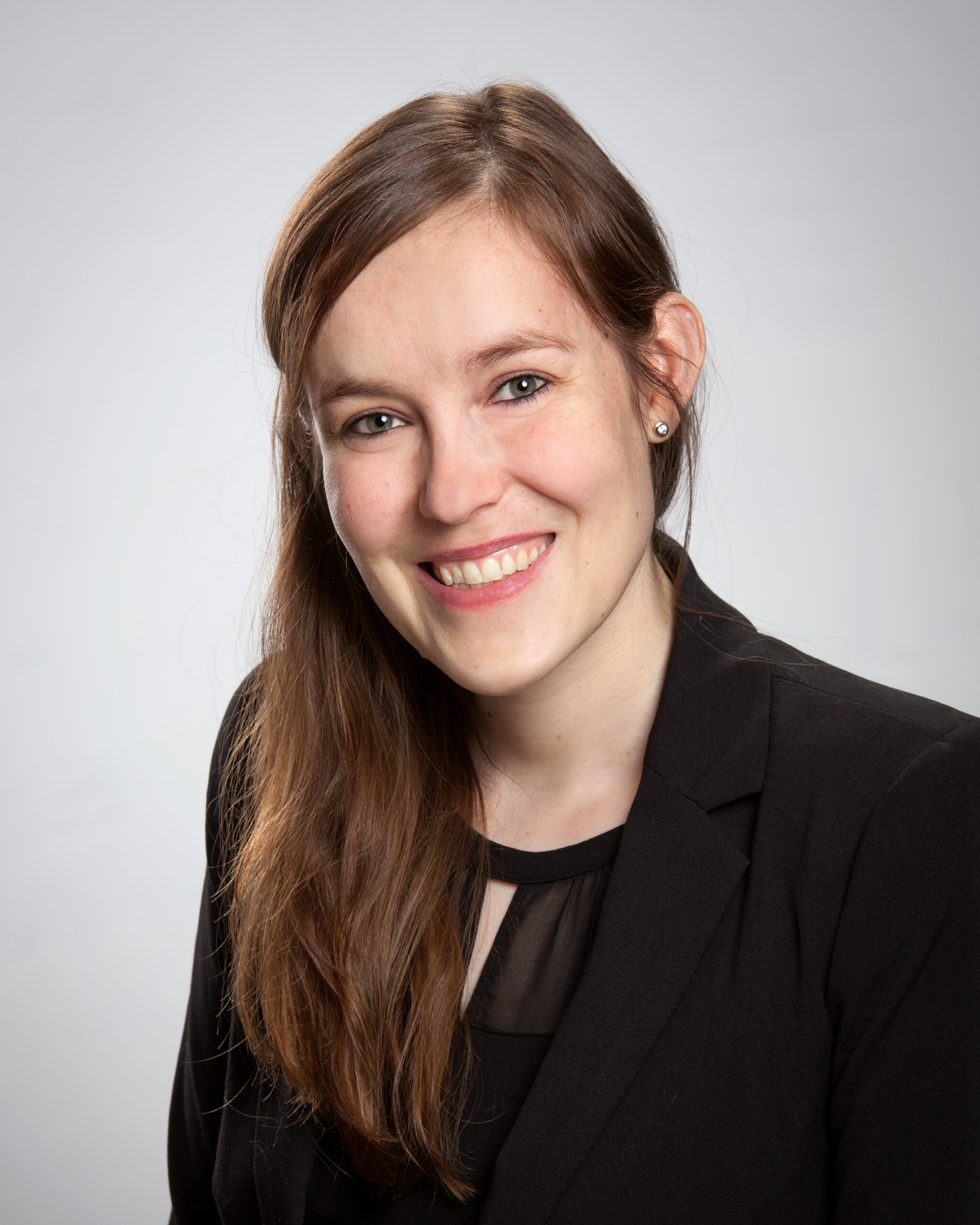
Elisa Kallioniemi, PhD
Assistant Professor
New Jersey Institute of Technology
Elisa Kallioniemi, Ph.D., is an Assistant Professor in the Department of Biomedical Engineering and the Director of the Brain Stimulation Lab at the New Jersey Institute of Technology (NJIT). She is a neural engineer and a brain stimulation scientist. In her research, she uses brain stimulation to develop neuroscientific methods to study the brain and approaches to modulate brain activity for therapeutic strategies for neurological and psychiatric disorders. Dr. Kallioniemi’s primary brain stimulation tool is transcranial magnetic stimulation (TMS), a non-invasive electromagnetic technique. Her research combines TMS with simultaneous non-invasive neurophysiological tools, such as electroencephalography and electromyography. Dr. Kallioniemi received her Bachelor’s and Master’s degrees from Aalto University School of Electrical Engineering in Finland. She obtained her Ph.D. in Applied Physics (medical physics) from the University of Eastern Finland. Alongside her Ph.D., she undertook practical clinical training in medical physics (radiotherapy, nuclear medicine, clinical physiology, diagnostic radiology, and clinical neurophysiology). Before joining NJIT in Fall 2022, Dr. Kallioniemi was a postdoctoral researcher in the Department of Psychiatry and Behavioral Sciences at Stanford Medicine, followed by a postdoctoral position in the Department of Psychiatry at the University of Texas Southwestern Medical Center.
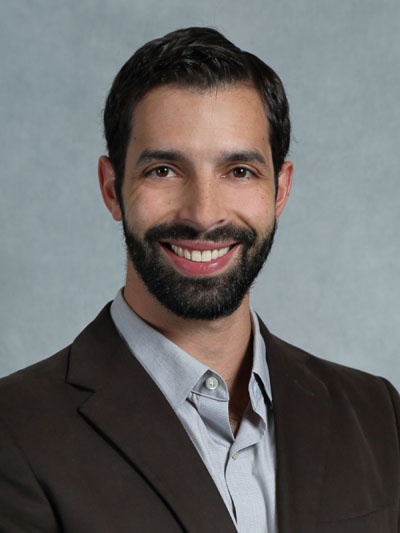
Corey Keller, MD, PhD
Assistant Professor
Stanford University
Dr. Keller is an Assistant Professor of Psychiatry and Behavioral Sciences at Stanford University. He received his MD and PhD in neuroscience from the Medical Scientist Training Program at Albert Einstein College of Medicine and completed psychiatry residency at Stanford focused on interventional psychiatry. The overarching goal of Dr. Keller’s Stanford Precision Neurotherapeutics Lab (precisionneuro.stanford.edu) is to improve brain stimulation treatment for neurological and psychiatric disorders. His lab focuses on understanding the neural mechanisms of how brain stimulation techniques alter brain circuits in an effort to develop novel, personalized, and more effective interventions. His lab combines invasive and noninvasive brain stimulation coupled with electrophysiology techniques to answer these pressing questions.

Bruce Luber
National Institute of Mental Health

Gabriel Lazaro-Munoz, PhD, JD
Assistant Professor
Harvard Medical School
Gabriel Lázaro-Muñoz, PhD, JD is Assistant Professor in the Center for Bioethics at Harvard Medical School and the Department of Psychiatry at Massachusetts General Hospital. Dr. Lázaro-Muñoz combines his background in neuroscience, law, and bioethics to examine the implications of emerging biomedical technologies in neuroscience and genomics. He is principal investigator of studies funded by the BRAIN Initiative-National Institutes of Health, the National Human Genome Research Institute, and the National Institute of Mental Health. Dr. Lázaro-Muñoz’s current studies examine ethical and social implications of integrating psychiatric genomics into clinical care, polygenic embryo screening, and the development of neurotechnologies such as adaptive deep brain stimulation systems. Dr. Lázaro-Muñoz received his Ph.D. in Neuroscience from New York University; his J.D. and Master of Bioethics from the University of Pennsylvania; and his BA in Psychology from the University of Puerto Rico.

Helen Mayberg
Mount Sinai
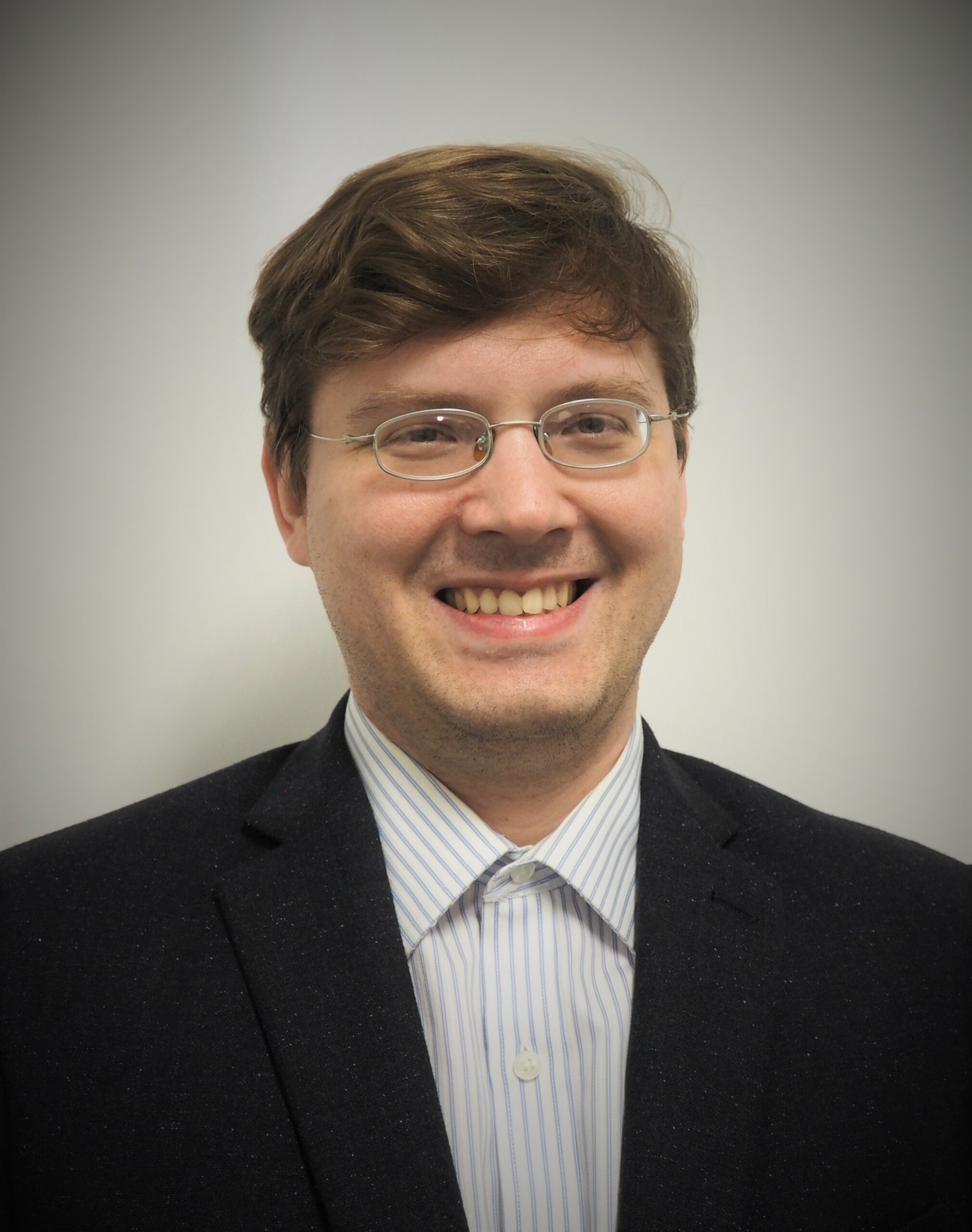
Alexander Opitz, PhD
Associate Professor
University of Minnesota
Alexander Opitz is an Associate Professor in the Department of Biomedical Engineering at the University of Minnesota. His research focuses on developing non-invasive brain stimulation technologies for improved clinical applications. Dr. Opitz has a particular interest in the underlying biophysics and physiology of transcranial magnetic stimulation (TMS) and transcranial electric stimulation (TES). He believes it is necessary to study the effect of brain stimulation across various levels of investigation to make progress. Thus, his research spans from computational modeling of electric fields and their effect on neurons, to electrophysiological recordings of brain activity in animal models and humans. His lab is further developing closed-loop stimulation technologies to improve the effectiveness of TMS. Dr. Opitz organizes training workshops at the University of Minnesota targeted at all researchers interested in advancing their methods tool kit in advanced brain stimulation methods.
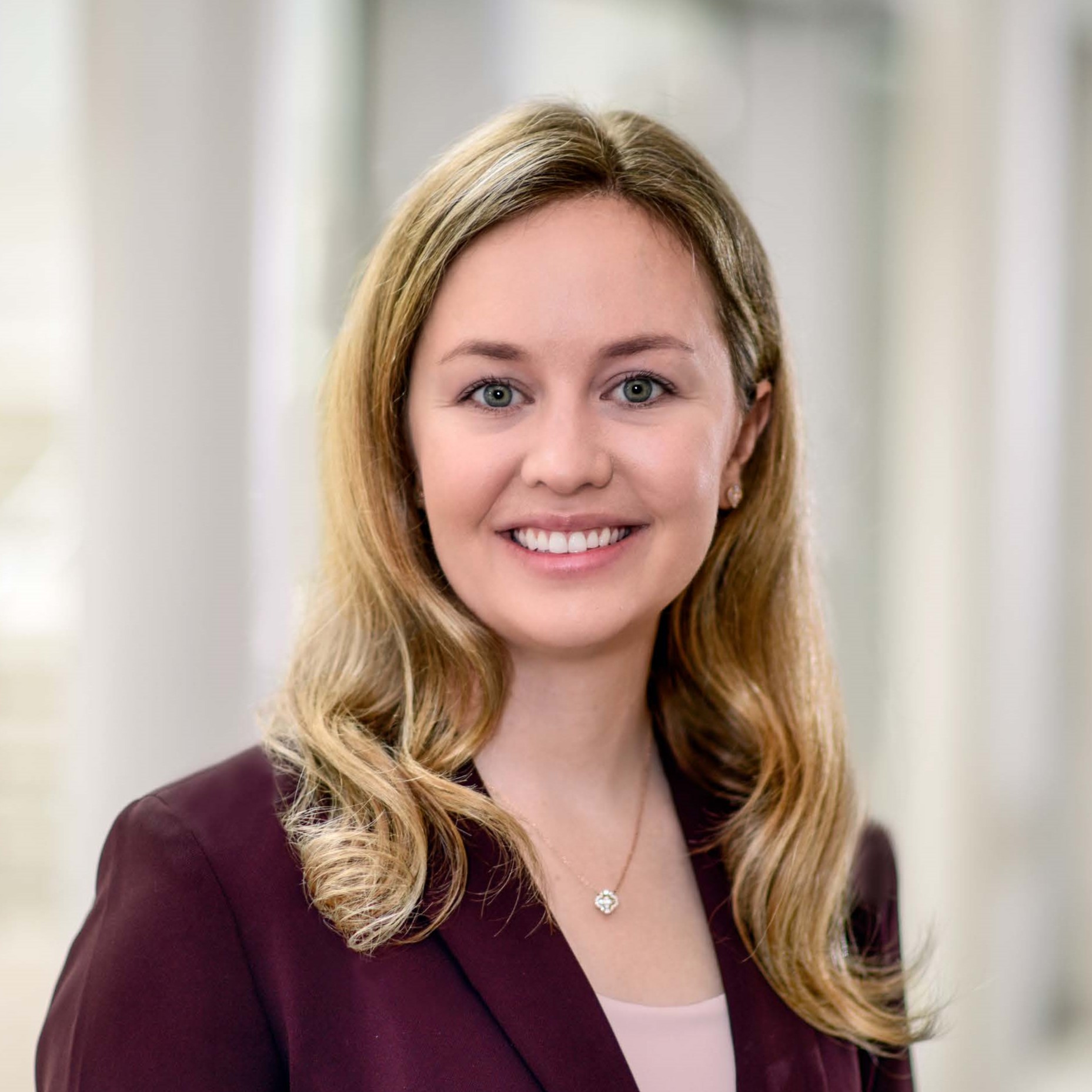
Nicole R. Provenza, PhD
Assistant Professor
Baylor College of Medicine
Dr. Nicole Provenza is an assistant professor of Neurosurgery at Baylor College of Medicine. Her research focuses on the neurophysiology underlying cognition and emotion and the effects of neuromodulation on neural activity and behavior. Dr. Provenza’s work integrates neural activity and deep phenotyping approaches to inform neural signatures underlying real-world functional deficits in cognitive and emotional disorders. She is also interested in developing bespoke stimulation strategies that more effectively guide brain activity and behavior toward healthy states.

Wesley K. Thompson, PhD
Principal Investigator
Laureate Institute for Brain Research
Dr. Wesley Thompson’s training is in statistical methods for longitudinal data; having developed and applied advanced statistical methods for non-parametric, semi-parametric, and multivariate estimation of longitudinal trajectories. He has co-authored over 350 peer-reviewed publications on a diverse array of applications, but primarily focused on longitudinal human brain imaging and genetics as they relate to neurodevelopment and biological psychiatry across the lifespan. Dr. Thompson’s methodological research focuses on the development and application of Bayesian hierarchical and mixture models for multivariate data. He has also worked extensively with the Nordic population genetic cohorts on cross-disorder GWAS linked to the comprehensive Nordic registries. He co-directs the Center for Population Neuroscience and Genetics (PoNG) at the Laureate Institute for Brain Research (LIBR) dedicated to understanding how human brain and cognition develops through complex interactions of genes and environment. As the Associate Director of the Data Analysis and Informatics Resource Center (DAIRC), he is in charge of consortium biostatistics for the Adolescent Brain and Cognitive Development Study (ABCD), a multi-site nationwide consortium studying almost 12,000 children aged 9-10 at baseline for 10 years. He is also the Director of Biostatistics for the HEALthy Brain Child Development (HBCD) Study, consisting of 25 sites around the country which will collect data on 7,500 infants and their mothers over 10 years.
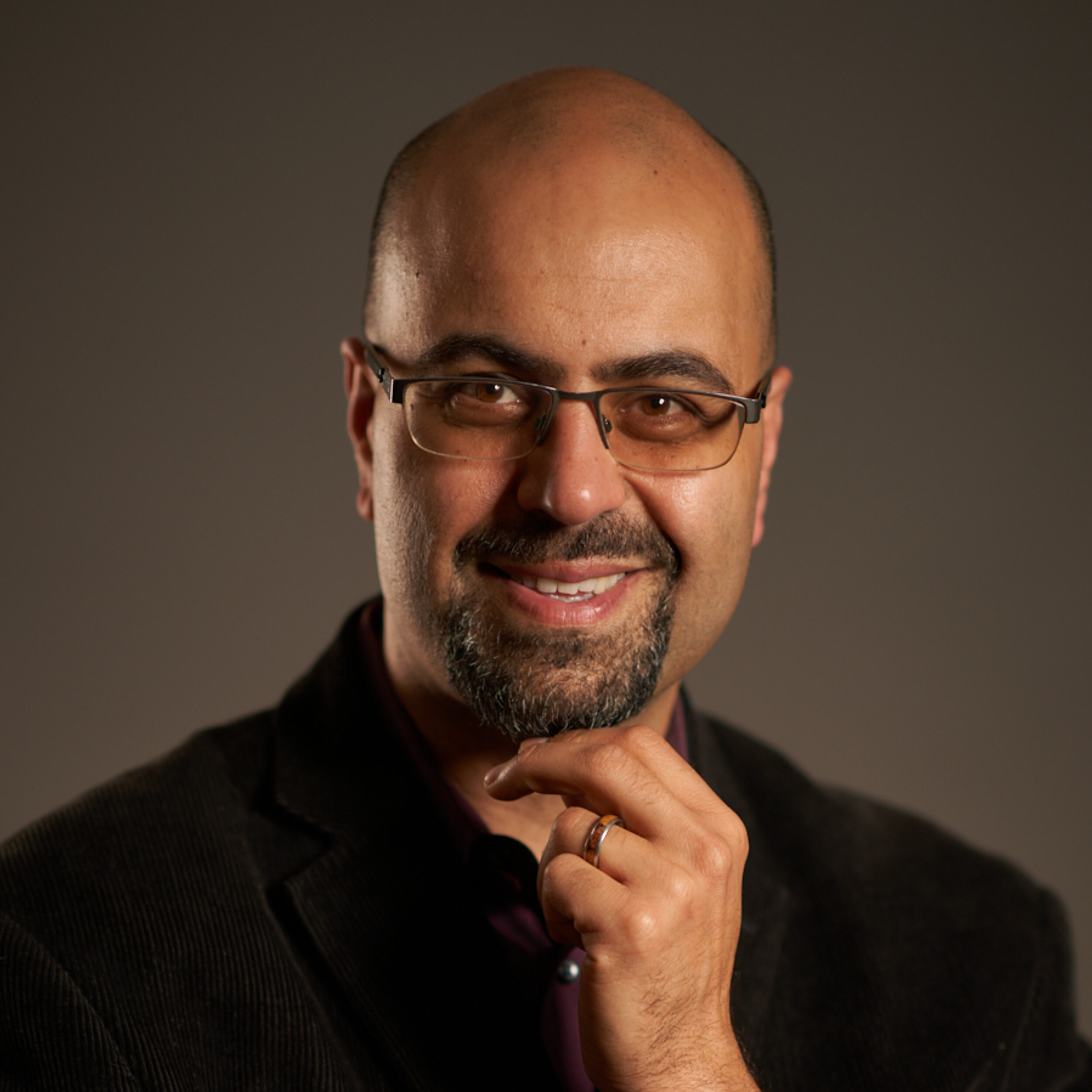
Alik S. Widge, MD, PhD
Associate Professor
University of Minnesota
Alik Widge, MD, PhD is a brain stimulation psychiatrist and biomedical engineer. He is an Associate Professor of Psychiatry at the University of Minnesota, where he directs the Translational NeuroEngineering Lab. Dr. Widge completed his MD at the University of Pittsburgh, his PhD in Robotics at Carnegie Mellon University, psychiatry residency at the University of Washington, and fellowships at Massachusetts General Hospital and the Massachusetts Institute of Technology. His research focuses on brain stimulation for severe and treatment-resistant mental illness, with particular emphasis on deep brain stimulation and related implantable technologies. Dr. Widge’s recent work has demonstrated new algorithms for closed-loop brain stimulation, stimulation methods for modifying connectivity in the distributed circuits of mental illness, and hardware solutions for embodying those insights. His laboratory studies both rodent models for prototyping these new technologies and human participants to identify biomarkers and targets for future intervention. His work has won numerous awards, including the Society for Biological Psychiatry’s AE Bennett Translational Research Award and the North American Neuromodulation Society’s Kumar Award. It has resulted in over 130 peer-reviewed published articles, covering a range of journals from engineering and neuroscience to clinical reviews.
